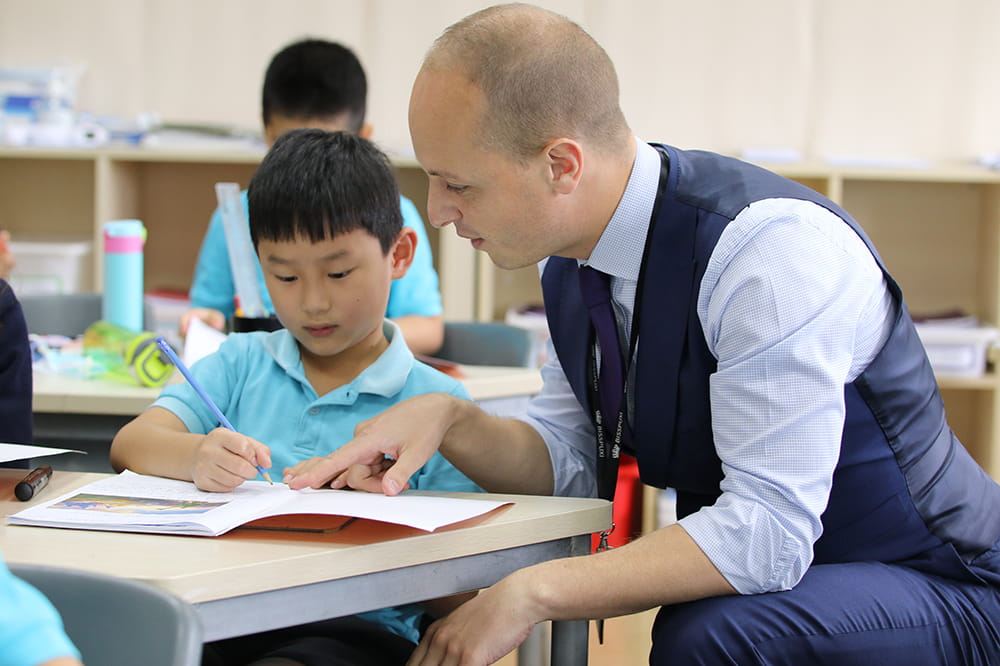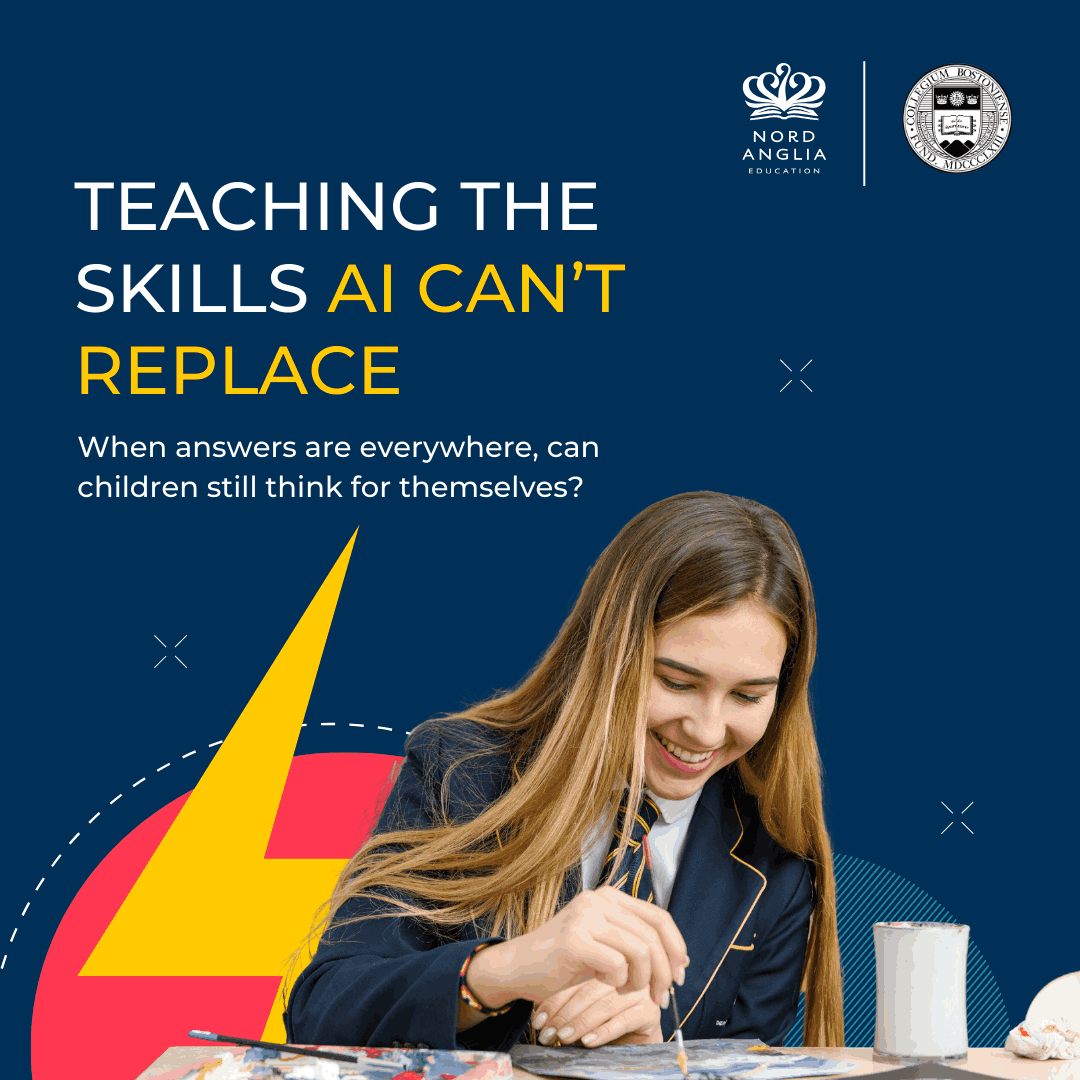In today’s interconnected world, English is more than a subject on the timetable. It is a global tool for communication, access and opportunity. The ability to use English fluently touches every part of a young person’s life: academic success, social confidence and future career prospects. Organisations such as the British Council have documented how English can drive economic and educational opportunity across countries, making language learning a strategic investment for families and schools alike.
That said, not all language learning is the same. Linguists distinguish between conversational fluency and the deeper, academic language that pupils need to succeed in school. Basic interpersonal communication skills, or BICS, often develop relatively quickly, while the cognitive academic language proficiency, known as CALP, typically takes considerably longer to establish. Research summarising this distinction is clear: learners can gain everyday conversational confidence within a short period, but full access to academic English generally develops over years, not weeks.
Measuring Progress
Practical experience in schools mirrors this research. Many EAL programmes report rapid early gains in listening and speaking, with learners becoming socially fluent within months. Deeper academic gains - the kind that show up in subject learning and exam performance - follow a longer trajectory. International and national studies suggest a general pattern: conversational progress can be seen within 6 to 24 months in many contexts, whereas academic proficiency often continues to develop across a 5 to 7 year window. These are averages, and individual learners vary, but the implication is clear: early, sustained, high-quality support produces both quicker wins and stronger long-term outcomes.
The advantages of bilingualism
There is another advantage to starting early. Cognitive research continues to show that bilingual children frequently enjoy benefits in attention, task switching and problem solving. In short, learning an additional language does not merely add a skill; it appears to enhance the developing mind in ways that underpin academic success across subjects. This is an important reminder that English acquisition is not a trade-off with a child’s home language: well-designed programmes support both, and children gain cognitive advantages from multilingualism.
Impactful Teaching
How schools deliver English matters. Frequent, high-quality exposure to confident, fluent models of English helps with pronunciation, listening comprehension and natural expression. Recent studies indicate that the frequency of authentic input is a major factor in immediate gains in pronunciation and form–meaning connections, and that regular interaction with fluent speakers accelerates speaking ability. For families seeking the best outcomes, this means looking for programmes that combine expert teaching, plentiful spoken input and meaningful opportunities to use English across the curriculum.
At Nord Anglia, our approach is exactly that: early identification of needs, targeted EAL support and plenty of purposeful English use across lessons and activities. The result is children who make rapid conversational progress and, with continued support, move confidently into full academic participation. If you are curious about how this could work for your child - including typical timelines for moving out of EAL provision (we can discuss your child’s likely trajectory in detail) - our Free Learning Consultation is a great place to start.
在当今这个高度互联的世界里,英语早已不只是课表上的一门学科,而是一种沟通、获取信息与拓展机会的全球化工具。流利的英语运用,几乎影响着孩子学习与成长的方方面面:从学业表现、社交自信,到未来的职业发展。英国文化教育协会(British Council)等机构的研究指出,英语能够推动国家之间的经济与教育交流,因此对于学校和家长而言,语言学习是一项具有战略意义的长期投资。
日常交流与学术语言的差异
然而,语言学习从来不是“一刀切”的。语言学家会将“日常交流流利度”和“学术语言能力”区分开来。前者指基本的人际沟通能力(BICS),通常可以在较短时间内培养;后者则是学生在学术环境中取得成功所需的认知性语言能力(CALP),需要更长时间的积累。研究表明,学生可能在短时间内就能自信地进行日常对话,但要全面掌握学术英语,往往需要数年时间,而绝非几周之内就能完成。
学习进度的衡量
学校的实际教学经验进一步印证了这一点。许多EAL(英语为第二语言,English as an Additional Language)课程数据显示,学生在听力和口语方面的初期进步通常非常明显,几个月内便能在社交场合流利交流。然而,学术层面的进步——即体现在学科理解和考试成绩中的语言能力——则遵循更长的成长轨迹。国际研究普遍认为:日常交流能力通常在6至24个月内显著提高;而学术语言能力则需要5至7年才能逐步成熟。虽然每位学生的个体情况不尽相同,但有一个结论非常明确:早期、持续且高质量的语言支持与辅导,不仅能带来更快的短期提升,也能为未来的深入学习奠定坚实基础。
双语学习的更多优势
尽早开始英语学习还有一项显著优势。认知科学研究表明,双语儿童在注意力、任务转换、问题解决等方面的表现往往优于单语儿童。换句话说,学习一门语言不仅是增加一项技能,更是对大脑发展的深层刺激,从而促进整体学习能力的提升。同时,学习英语,并不是与母语的“二选一”:科学的语言教学项目可以同时促进两种语言的发展,而多语环境更能为孩子带来长期的认知和学术优势。
教学质量决定成效
语言教学的质量直接决定了学习的成效。高频率、高质量地接触自信、流利的英语语言示范,有助于学生提升发音、听力理解和自然表达。研究显示,真实语言输入的频率,是提升发音和理解“形式—意义”关联的关键所在;而与流利使英语用者的定期互动,则能显著加快口语的进步。因此,想要孩子取得最佳效果的家庭,应优先选择那些结合了专业教师指导、丰富语言输入,以及跨学科语言应用机会的课程。
Nord Anglia 的语言学习优势
在Nord Anglia,我们的教学理念正是建立在这些研究与经验之上:从早期识别学生的语言需求入手,有针对性地提供EAL课程支持,并在课堂及丰富的活动中大量、自然地使用英语。这种方法不仅帮助学生迅速提升口语交流能力,并能在持续系统的指导下,为他们自信迈入更深层次的学术学习奠定基础。
如果您希望了解这种方法如何适用于您的孩子,包括他们结束EAL课程的时间线,以及具体的语言发展规划,欢迎预约我们的免费语言学习咨询(Free Learning Consultation),为孩子的英语进阶之路开启第一步。
Open Days
Register for our Open Day!







